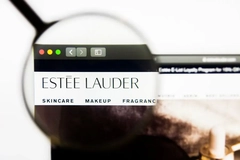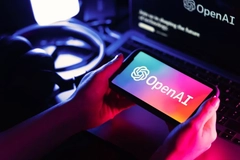Revieve launches AI skin age tool for personalized skin care, RoC races to adopt

Revieve has released an AI-powered tool, called Skin Age Diagnostics, to identify a user’s skin age and deliver data-driven skin care recommendations. RoC Skincare is the first brand to implement the feature into its digital experience to refine its consumer personalization strategy.
The Skin Age Diagnostics tool aims to make complex skin analysis easier for consumers to understand, helping brands provide a more digestible consumer experience. Rather than overwhelming users with raw data or unfamiliar skin parameters, the skin age output offers a single, relatable reference point: age.
“The Skin Age Diagnostics provides an intuitive interpretation of skin health,” says Sampo Parkkinen, CEO at Revieve. “It makes it easier for consumers to understand their skin’s condition while still benefiting from detailed diagnostics.”

“This latest innovation represents an expansion of our AI-powered skin care solutions, enabling brands to deliver more tailored and sophisticated experiences to their customers.”
RoC Skincare is applying the feature to deliver precise, science-backed product matching.
“By partnering with Revieve and incorporating Skin Age Diagnostics, we are ... ensuring that every individual receives tailored product recommendations that address their unique skin concerns and aging journey,” says Elizabeth Shaver, senior e-commerce and customer relationship manager of Marketing, at RoC Skincare.
Understanding skin age
Revieve’s Skin Age Diagnostics uses computer vision and proprietary algorithms to assess a user’s facial features via uploaded images. It then estimates their skin age by comparing the assessment to biological age benchmarks.
This age estimate becomes a reference point for evaluating skin health and tailoring product recommendations.
The tool uses age as a measurable outcome to translate technical diagnostics into more accessible metrics. This simplifies how brands present skin health results to consumers and reduces reliance on complex terminology.
Skin Age Diagnostics also enhances the personalization of product recommendations and routine-building. By aligning product suggestions with the consumer’s skin age, brands can deliver more relevant experiences tailored to individual needs.
“At RoC Skincare, we have always been committed to pioneering innovative solutions that empower consumers with real, science-driven skin care,” says Shaver. “This partnership ensures our digital platform continues to deliver meaningful results.”
.jpg) Revieve’s AI tool estimates skin age to support personalized recommendations.The tool enables the structuring of skin care journeys around skin age milestones, offering a straightforward narrative of progression and improvement over time. Brands can also more accurately match key product benefits to common aging concerns.
Revieve’s AI tool estimates skin age to support personalized recommendations.The tool enables the structuring of skin care journeys around skin age milestones, offering a straightforward narrative of progression and improvement over time. Brands can also more accurately match key product benefits to common aging concerns.
As a result, consumers are poised to benefit from product journeys that feel more personal, consistent, and guided.
Driving engagement and retention
For beauty brands, Skin Age Diagnostics aims to add a novel storytelling layer to personalization by linking product claims to age-specific concerns, such as fine lines, texture, or tone.
“The skin age metric adds an emotional and scientific layer to skin care routines,” says Parkkinen.
The improved diagnostic precision aims to help brands offer more targeted campaigns, increase digital engagement, and improve channel conversion rates.
The tool also collects aggregate skin age data across user populations, which over time may help brands identify emerging skin health trends, common concerns among specific demographics, or potential performance benchmarks.
These insights could support product development planning, inform targeted marketing strategies, and guide future innovation efforts.
Personal Care Insights previously reported on the growing use of AI tools to surface unmet consumer needs and inform product portfolio strategies. These technologies analyze recurring patterns in user concerns and recommendation requests, giving brands a clearer view of where demand may be outpacing supply.
Comprehension means adoption
The tool’s simplification features support user confidence in the technology and can reduce barriers to digital skin care adoption.
There is a growing skepticism tied to consumer-facing AI recommendation tools. Anastasia Georgievskaya, CEO and co-founder of Haut.AI, previously told us:
“We’ve consistently heard the same concern: Consumers are initially excited about AI but quickly become skeptical about the recommendations if they do not understand them. The most common question from users is, ‘Can you explain why this product was recommended to me?’”
According to Revieve, simplifying skin diagnostics through relatable benchmarks like skin age is intended to improve user engagement and adoption..jpg) The tool translates complex diagnostics into a relatable benchmark: age.
The tool translates complex diagnostics into a relatable benchmark: age.
By demystifying diagnostic feedback, brands using the tool are poised to improve product discovery and position themselves as transparent, evidence-led partners in a consumer’s skin care journey.
Era of AI
The growing adoption of digital self-assessment tools reflects shifting consumer expectations around convenience, personalization, and technology-enabled decision-making.
Recent research from Accenture indicates that 75% of consumers are open to AI-powered personal shopping, signaling a broader willingness to trust intelligent systems with tailored recommendations.
As skin care users become more informed, digitally fluent, and focused on measurable outcomes, demand for individualized solutions continues to rise. This trend accelerates the integration of AI-driven personalization tools across the beauty sector.













